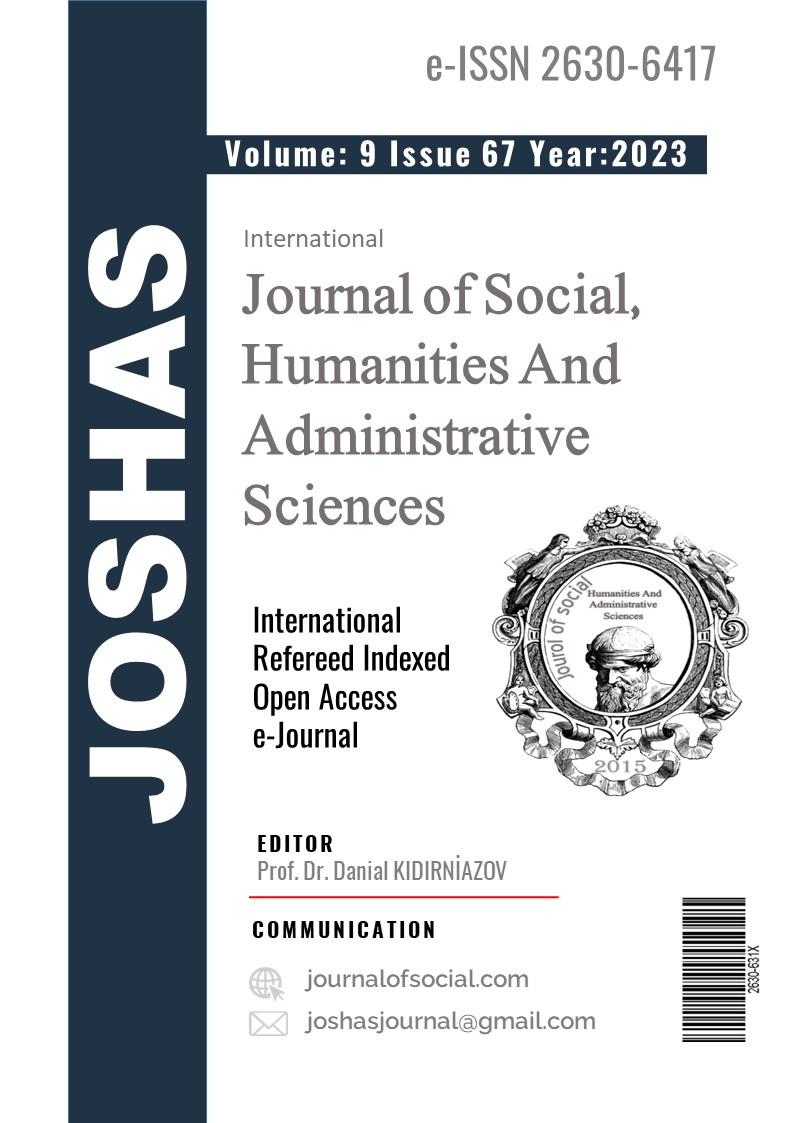Author :
Abstract
Hayatın her alanında örgütlenme dendiğinde aklımıza gelen ilk kavramın “hiyerarşi” olması çok manidardır. Sanırım insanlar bir iş ve düzenin hissedildiği her yerde hiyerarşinin varlığını kanıksamış durumdalar. Bu nedenledir ki gerek sosyal gerekse ekonomik hayatta her girişim beraberinde bir hiyerarşiyi getirmiştir. Bir iş yerinden tutun da geleneksel aile yapımıza kadar her yerde bunun izlerini görmek mümkündür.
Bugün ekonominin temelini oluşturan tarım sektöründe de aynı hiyerarşik yapının varlığını görmekteyiz. Bugün gelinen noktada; üyelerinin neredeyse büyük bir bölümünün eğitim eksikliği yaşadığı ve yaşlı diyebileceğimiz bir kesimin oluşturmasından mıdır yoksa her alanda olduğu gibi sorumluluk almaktan kaçış mı ya da alışılmış çaresizlik midir bilinmez, tarımsal kooperatiflerde “kendini egemenliğe teslim etme” anlayışı hâkim durumdadır. Önce “İmece” ve daha sonra evrilerek ekonomik hayatın içinde ticaret ahlakıyla harmanlanmış eşsiz bir “Ahilik” kültürüne sahip bir ülke olarak, bugün geldiğimiz noktada modern kooperatifçilik anlayışının yığınla çözümlenmemiş sorunlarıyla karşı karşıya kalmış durumdayız.
Bir yandan kuvvetli bir amaç birliği, ortak karar ve sorumluluk ruhuyla hareket ederken diğer yandan da zekasını tutkusu ile harmanlayıp işinde kullanma, temsil ve katılım hakları gibi kişisel özgürlüğü de içinde barındıran bu köklü sistemden, nasıl her şeyin kar ve hiyerarşiye indirgendiği yalın bir kooperatifçilik kavramına evrildiğimiz anlaşılır gibi değildir. Güvenin ve yardımlaşmanın kaybedildiği gerek insan gerekse örgütlenme ilişkilerinin mevzuat karmaşaları içine sıkıştırılarak bir nevi tutsak edildiği, girişimcilik ruhunun sadece nicelikle anlamlı kılınmaya çalışıldığı, “ben değil de biz olabilme” bilincinin ve sevincinin kaybedildiği bir noktaya gelmiş durumdayız. Oysaki örgütlenme; duygusuyla, düşüncesiyle ve eylemiyle bir bütündür. Küreselleşen dünyada modernizmin gerekliliklerini göz ardı etmeden, kırsaldan doğan bu ruhun ve itibarın sahibine iade edilmesi ve kalkınmanın yeniden topraktan neşet edebilmesi için aslımıza yani köklerimize dönmemiz gerektiği ortadadır. Bunu da ancak kültürel mirasımızı sahiplenerek, toprağı çiftçiyle ve çiftçiyi toprakla barıştırarak, hakkı ve sorumlulukları hiyerarşiye değil de demokrasiye, bürokrasiye değil de emeğe teslim ederek bu ruhu canlandırabiliriz.
Bu çalışmada ortaya konulan yeni bir keşif değildir. Asıl meselemiz olan tarımın öneminin fark edilerek öncelenmesi, planlamanın ve uygulamanın ihtiyaç duyulduğu zamanda doğru yapılmasının desteklenmesidir. Çalışmadaki amacımız tarım sektörünün sorunlarına bir çözüm önerisi olarak kooperatiflerin özündeki ruhu tekrar canlandırabilmektir. Bu bağlamda tarih boyunca büyük bir coğrafyada ahlaki, ekonomik ve sosyal alanda olumlu katkı sağlamış olan Ahilik teşkilatının günümüz kooperatifçiliği için örneklik değerini ortaya çıkarmak oldukça önemlidir. Bu teşkilatın örnek alınabilecek olan kısımlarının günümüz kooperatifçilik ilkeleri ile karşılaştırılarak sunulması çalışmayı farklı kılan yönüdür. Bu bağlamda çalışmada öncelikle kooperatifçilik kavramı, kooperatifçilik ilkeleri, Ahilik teşkilatı ve modern kooperatifçilik ilkeleri yönünden karşılaştırılarak benzerlik ve farklılıkları ortaya konulmaya çalışılmıştır.
Keywords
Abstract
It is very significant that the first concept that comes to our mind when organized in all areas of life is “hierarchy”. I think people are taken for granted that wherever work and order hisses, organs are found. For this reason, every attempt to survive, both for social purposes and for economic survival, created an organization. From a workplace to our traditional family structure, it is possible to take a look at it everywhere.
Today, we walk around the same cells in the agriculture sector, which is the basic content of the economy, and we see it in mobile cooperatives despite their shortcomings. The point reached today; Whether it is the avoidance of taking responsibility or the habitual desperation from the creation of a section that we can call the elderly, where almost a large part of the family has a lack of education, as in every field, it is unknown, the understanding of "submitting oneself to sovereignty" is always dominating in cooperatives. As a country that has a unique "Ahi-Order" blended with commercial ethics in economic life, we are faced with the unresolved problems of the modern understanding of cooperatives at the point we have reached today.
How we have evolved from this deep-rooted system, which includes personal freedom such as the right to use, representation and participation in business, by blending intelligence with passion, while acting with a strong unity of purpose, shared decision and responsibility spirit on the one hand, to a simple cooperative concept where everything is reduced to profit and hierarchy. is not intelligible. We have come to a point where trust and cooperation are lost, human and organizational relations are somehow imprisoned by being squeezed into the confusion of legislation, the entrepreneurial spirit is tried to be made meaningful only in quantity, and the consciousness and joy of "being us instead of me" is lost. However, organization; It is a whole with its feelings, thoughts and actions. It is obvious that we need to return to our roots, in order to return this spirit and dignity born from the countryside to its owner and for development to emerge from the soil again, without ignoring the requirements of modernism in the globalizing world. We can only revive this spirit by embracing our cultural heritage, reconciling the land with the farmer and the farmer with the land, by handing over the rights and responsibilities to democracy instead of hierarchy, to labor instead of bureaucracy.
The discovery made in this study is not a new discovery. Our main issue is to recognize and prioritize the importance of agriculture, and to support planning and implementation when needed. Our aim in the study is to revive the spirit of the cooperatives as a solution proposal to the problems of the agricultural sector. In this context, it is very important to reveal the exemplary value of the Ahi organization, which has made a positive contribution in moral, economic and social fields in a large geography throughout history, for today's cooperatives. Presenting the exemplary parts of this organization by comparing them with the principles of today's cooperatives is the aspect that makes the study different. In this context, in this study, first of all, the concept of cooperatives, the principles of cooperatives, the Ahi organization and the principles of modern cooperatives were compared and tried to reveal their similarities and differences.
